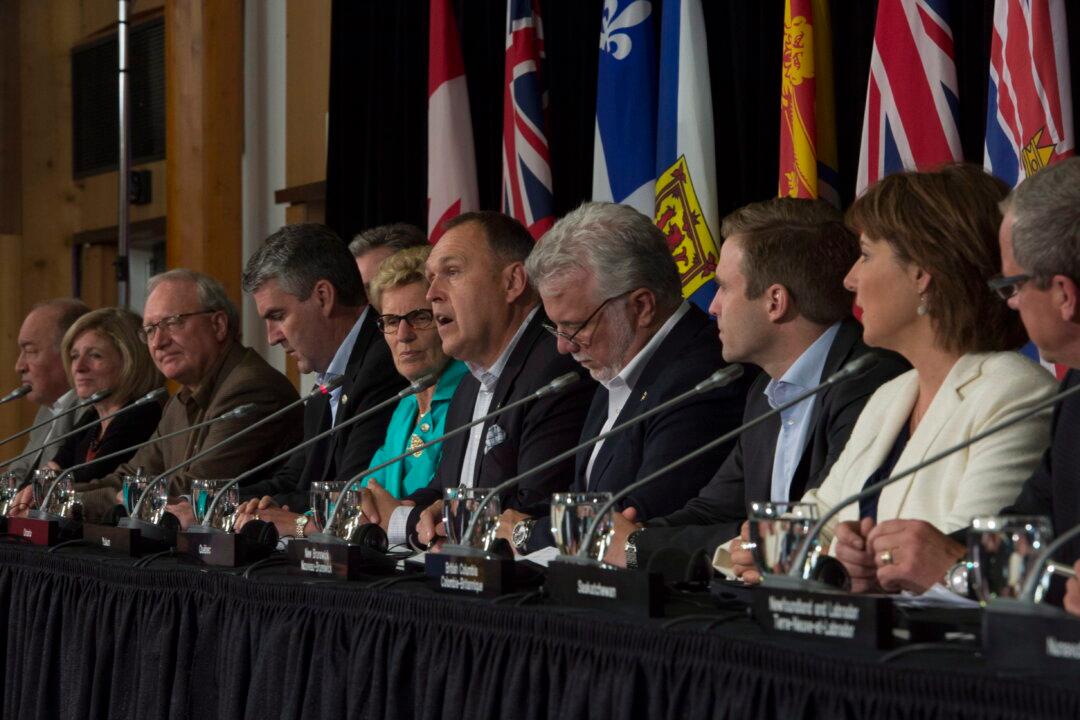As Stephen Harper prepares for the real election campaigning to begin after the Labour Day long weekend, he must be praying for some good news on the economic front.
The news so far has been pretty miserable. With a year of falling oil prices, month after month of stagnant (or worse) GDP growth, and a week of wild market turmoil, Harper’s “sound hand on the tiller” messaging is sounding a little hollow.
Is the Canadian economy in recession? It doesn’t matter. Voters think we are, and it’s clear they want their government to do something.
This news has encouraged Liberal leader Justin Trudeau to roll the dice and stake his campaign on a massive infrastructure-building program and three years (at least) of budget deficits. At the time of writing, NDP leader Thomas Mulcair is sticking with his story of fiscal prudence, but has been reduced to pulling fiscal rabbits out of a hat to support his party’s aggressive social agenda with the promise of balanced budgets.
Bandage Solutions
Regrettably these ’solutions’ are just bandages—feeble attempts to fight symptoms, rather than tackling the underlying economic disease.
So, what’s wrong with the Canadian economy?
Over the past few decades globalization has hollowed out the nation’s manufacturing base in Ontario while market forces have directed that we become primary producers of the rawest, lowest possible, value-added (mostly energy) products. The result? We’ve become a “dig and deliver” producer of expensive raw materials in a world flooded with cheap commodities.
Ironically, we used to have a much more balanced economy. The problems with Canada’s economy started with the fall of the Berlin Wall back in 1989. When Soviet Communism collapsed in the early 90s, the world rejoiced at the end of the Cold War. Then the Russian’s asked the really difficult question: what is capitalism?
Regrettably, Wall Street investment bankers (under cover of the Washington Consensus—a set of broadly free market economic ideas, supported by prominent economists and international organisations, such as the IMF, the World Bank, the EU, and the U.S.) stepped forward to answer that question. Capitalism, they told the world, was about ‘free’ markets. Yes, it had private ownership of property and all that, but the most important message buried in the Washington Consensus was—Markets Rule.




